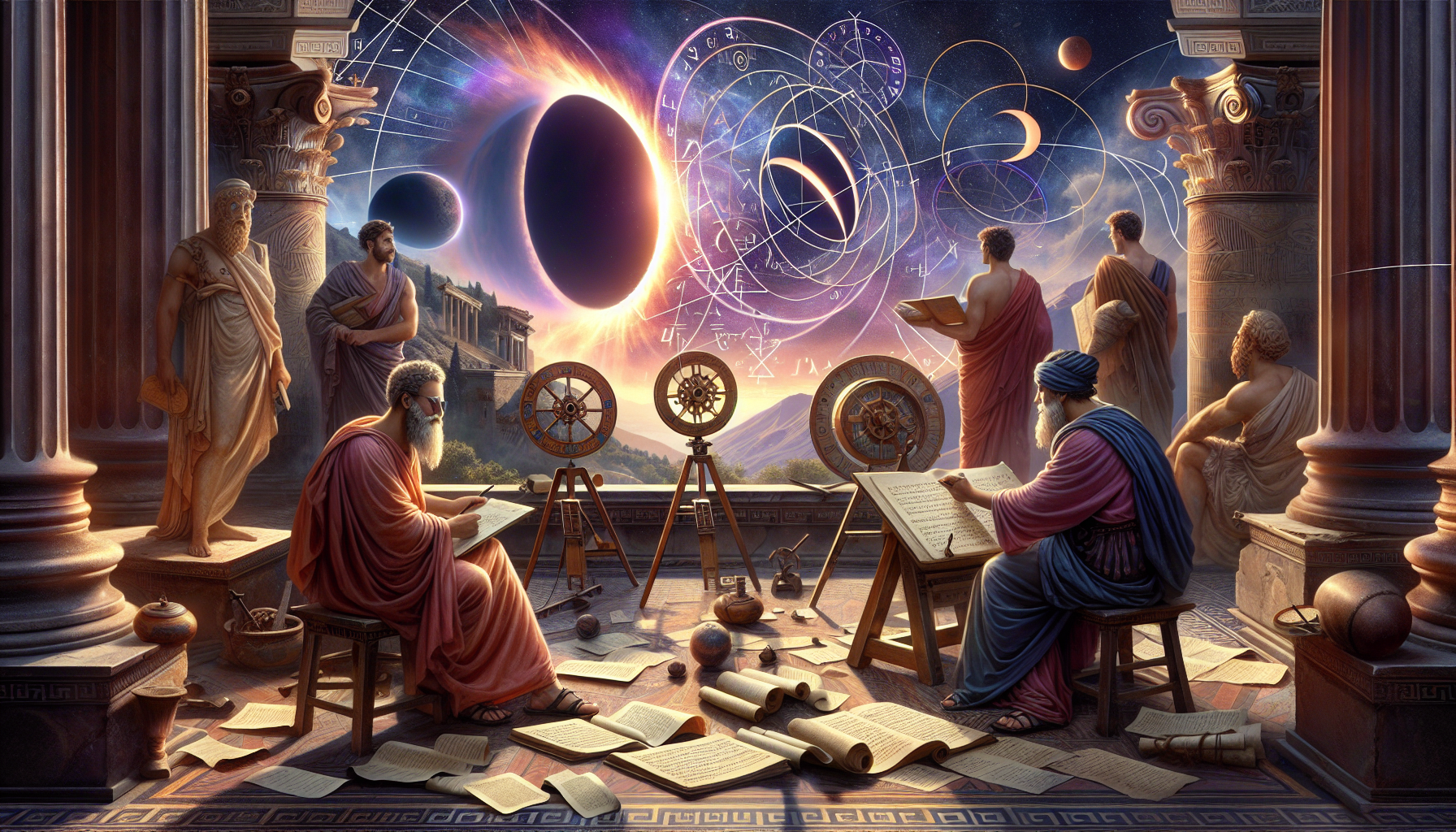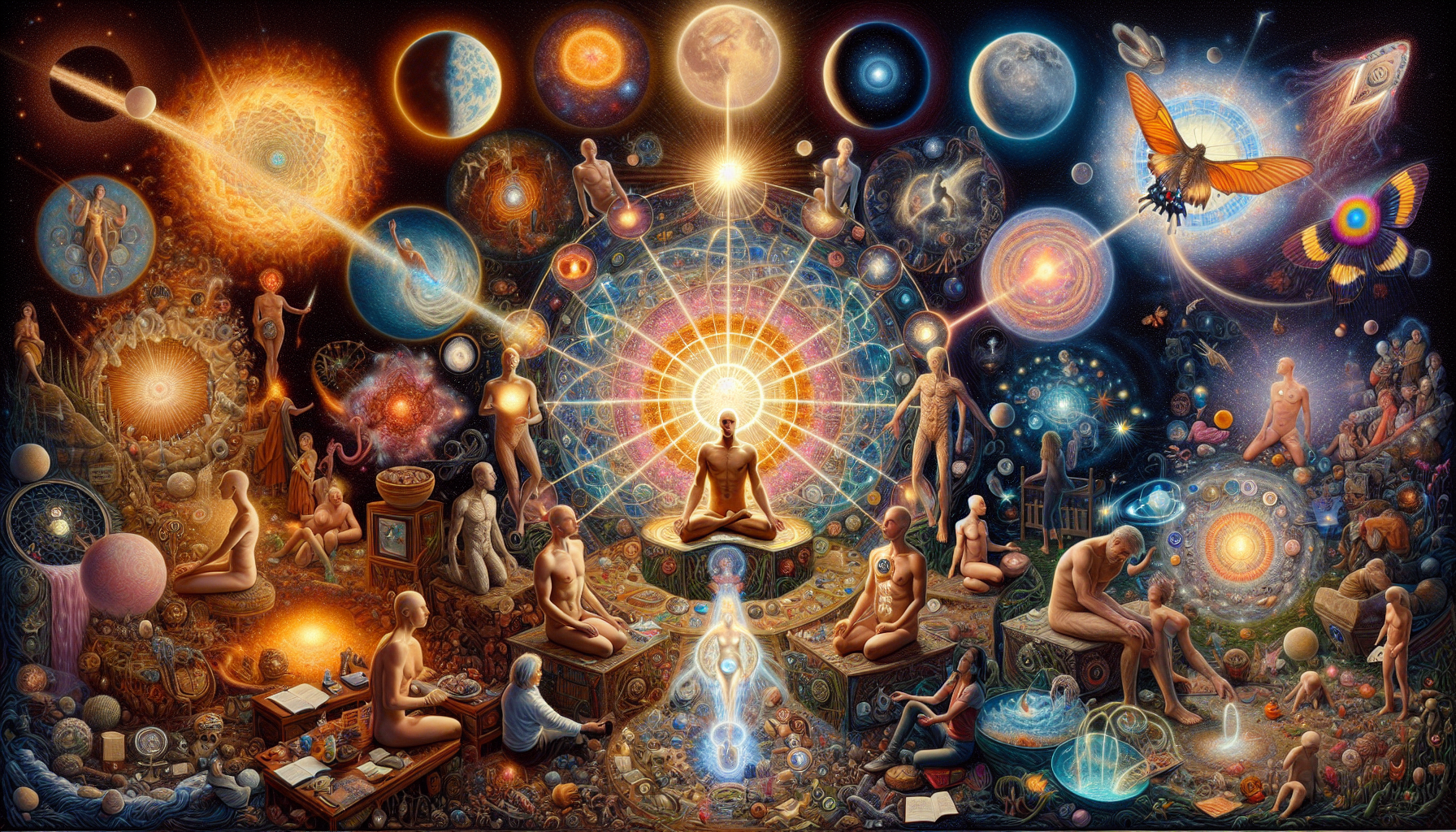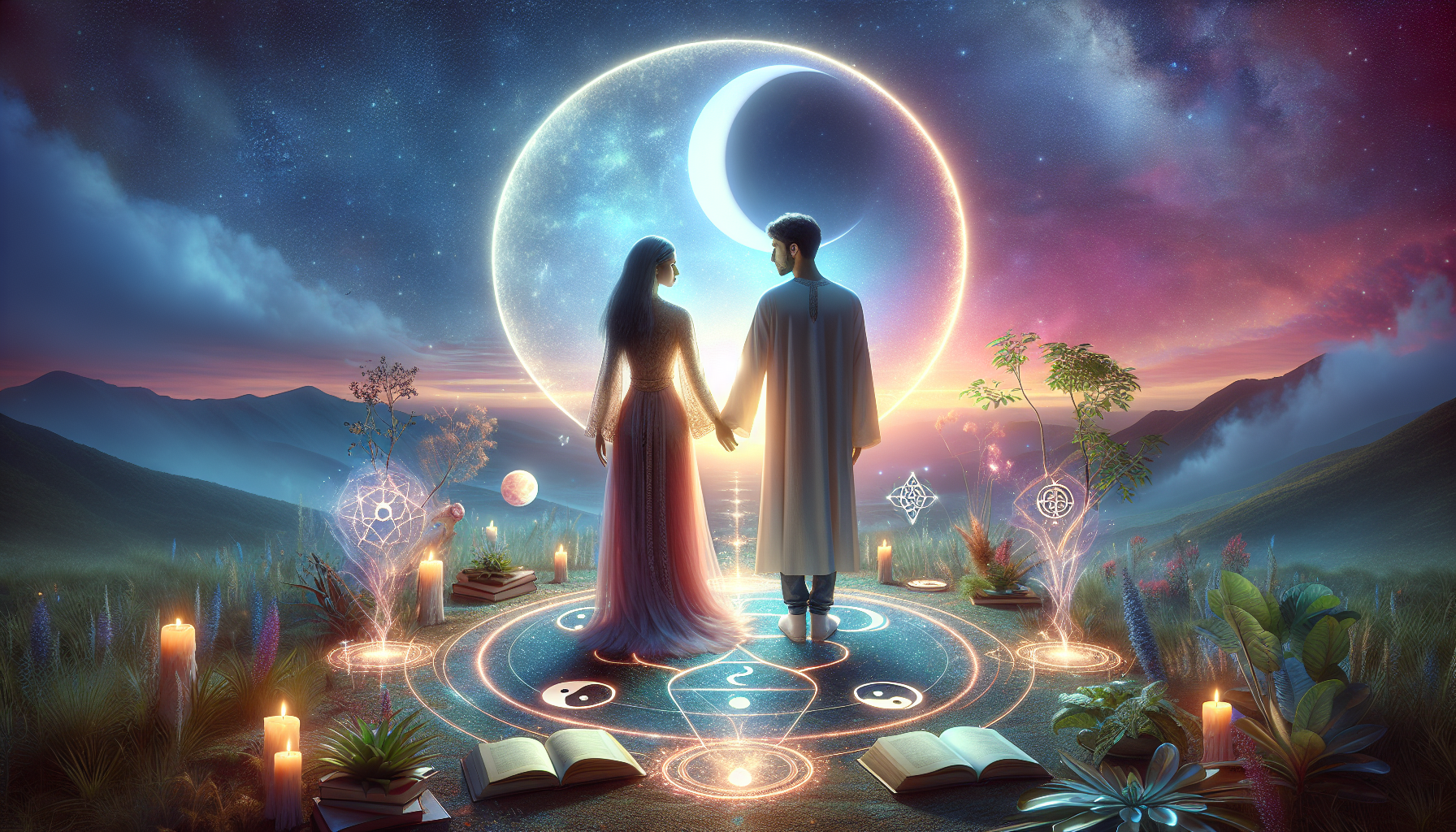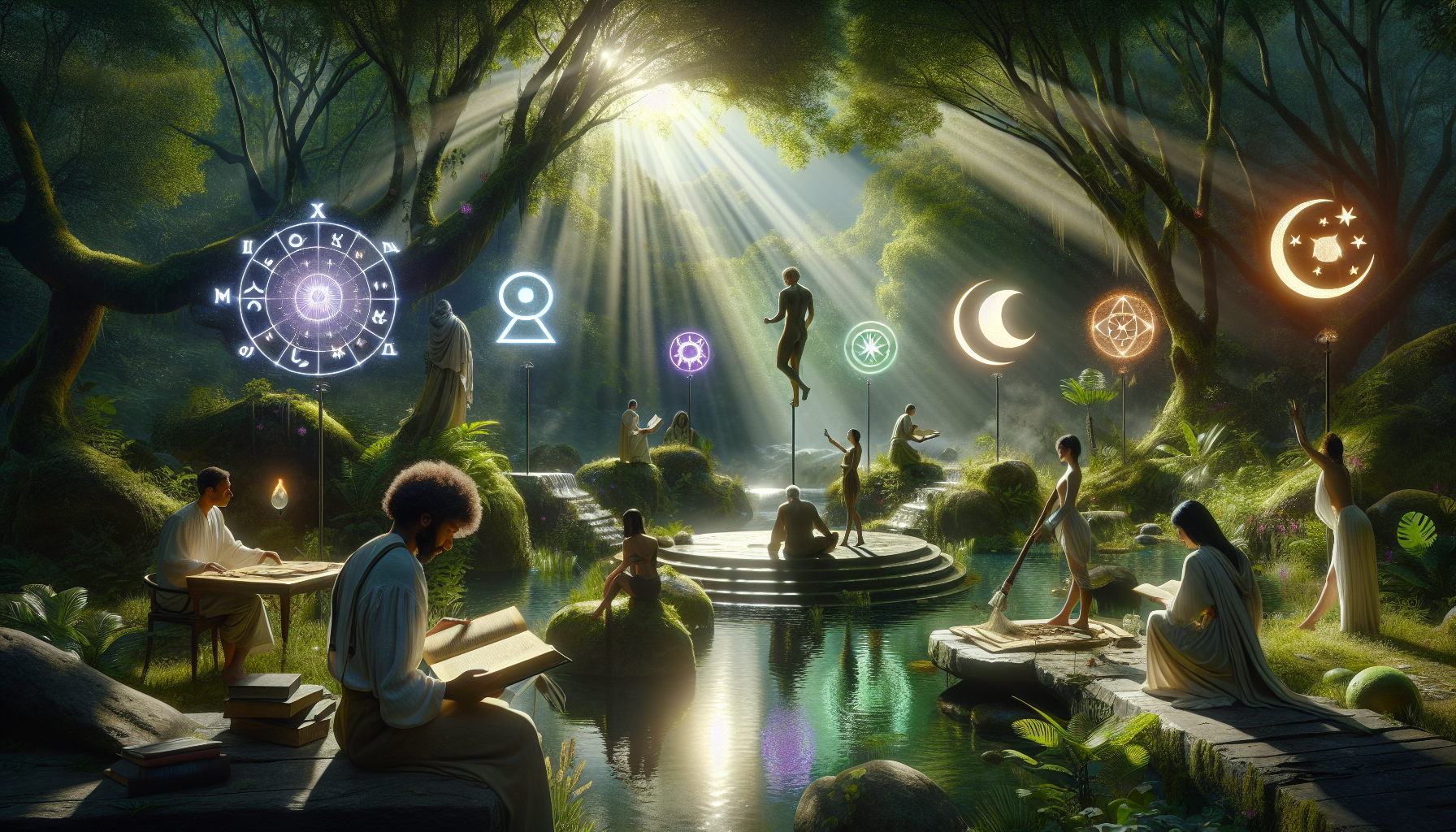Eclipses have long stood as awe-inspiring celestial events, bridging the gap between ancient myth and modern science. This article embarks on a journey exploring the historical significance of eclipses across various eras and cultures. From the ancient interpretations in Mesopotamia, China, and the Americas, through the scientific revolutions of the classical and medieval worlds, to the modern era where eclipses are celebrated both for their scientific value and cultural impact. Dive into the evolution of humanity’s understanding and the continuous fascination with these cosmic phenomena.

The Historical Significance of Eclipses Across Cultures
Ancient Mesopotamia and the Omen of Eclipses
The awe-inspiring phenomenon of eclipses has captivated the human imagination since ancient times. In Ancient Mesopotamia, eclipses were not merely celestial events but omens that held profound significance. The Mesopotamians, brilliant sky watchers, meticulously recorded these eclipses, interpreting them as messages from the gods. With the main SEO keyword, eclipses, deeply woven into their culture, they developed elaborate systems to predict these occurrences, believing they foretold significant events, particularly for their kings and the fate of their empires.
Eclipses in Ancient China: Dragons in the Sky
Similarly fascinating is the interpretation of eclipses in Ancient China, where a celestial dragon consuming the sun or moon was believed to cause them. This vivid imagery spurred the Chinese to advancements in astronomy as they sought to predict and understand eclipses. The significance of these celestial events extended beyond myth, influencing political and agricultural decisions, underlining the tight interweaving of eclipses into the fabric of Chinese society. The Mandate of Heaven, a central philosophical concept in Chinese culture, was thought to be reflected in the occurrence of eclipses, linking celestial phenomena with the righteousness of the ruling dynasty.
Maya and Inca: Advanced Astronomical Systems
Moving westward to the Americas, the Maya and Inca civilizations also held eclipses in great reverence. Their advanced astronomical systems allowed them not only to predict eclipses but to embed these events within their cultural, religious, and social practices. For the Maya, eclipses were significantly tied to their calendar system and cosmology, influencing rituals and agricultural activities. The Inca, on the other hand, interpreted solar eclipses as the sun being bitten by a giant snake, prompting them to engage in specific rituals to prevent the sun’s disappearance.
Across these ancient cultures, eclipses stood at the crossroads of myth, science, and society. While interpretations varied, the unifying theme remains the awe and reverence these celestial events inspired. As we reflect on their historical significance, it’s evident that eclipses have always been more than just astronomical events; they are a compelling part of human history that continues to fascinate and inspire us today.

Eclipses in the Classical and Medieval Worlds: A Journey Through Time
Ancient Greece: From Myth to Science
Eclipses, those mesmerizing celestial events, were once shrouded in myth in Ancient Greece, only to transition towards the realm ofscience. The Greeks, fascinated by the workings of the heavens, began questioning the divine explanations of eclipses. This led to significant advancements in astronomical understanding, marking a pivotal moment in history where eclipses began to be predicted and explained through science rather than solely through myths.
Ancient and Medieval India: Celestial Drama
In the tapestry of Indian culture, eclipses found a place both in mythology and in the science of Vedic astrology. Eclipses were interpreted as the result of a celestial dance between the sun, moon, and the mythical planets Rahu and Ketu. This blend of celestial mythology and astronomy influenced not just religious practices but also the very fabric of daily life, underlining the profound significance eclipses held in Indian society.
The Islamic Golden Age: Stars and Scholars
The Islamic Golden Age illuminated the world with its contributions to science and astronomy, with eclipses playing a starring role. Muslim scholars not only refined the methods to predict eclipses but also used these events to advance their understanding of the universe’s mechanics. Eclipses thus became a bridge between the celestial and the terrestrial, between divine inspiration and human curiosity.
The exploration of eclipses in the classical and medieval worlds unveils a fascinating journey from myth to science. In different cultures, eclipses were both feared and revered, prompting humans to look up at the sky in awe and search for meaning and understanding. Today, our scientific understanding of eclipses may have demystified many of their aspects, but the awe they inspire remains unchanged.

Eclipses in the Modern Era: Unveiling the Cosmos
Enlightenment Europe: A Scientific Revolution
In the age of Enlightenment, eclipses continued to inspire awe and curiosity, but now, they also became powerful tools for scientific discovery. Astronomers used eclipses, armed with the burgeoning principles of Newtonian physics, to test and refine our understanding of the cosmos. This period marked a significant shift where the focus moved from purely observational to theoretical, using eclipses as natural experiments to unravel the mysteries of celestial mechanics.
Eclipse Expeditions: Adventures in Science
The 20th century saw the dawn of eclipse expeditions, thrilling adventures that combined the spirit of exploration with the pursuit of knowledge. Scientists and astronomers travelled across the globe, often to remote and exotic locations, to observe and study eclipses. These expeditions were not just scientific endeavors but also spectacles that captured the public’s imagination, highlighting the human desire to explore and understand the unknown.
Cultural Impact Today: Beyond Science
While our scientific understanding of eclipses has grown exponentially, these celestial events continue to hold a significant place in popular culture and collective human experience. Eclipses inspire festivals, art, and moments of communal reflection, reminding us of the beauty and mystery of the natural world. They serve as a bridge between scientific inquiry and human curiosity, between the knowledge we have acquired and the wonders we have yet to explore.
As we peer into the cosmos through the lens of modern science, eclipses remain a symbol of our quest for understanding, a reminder of the endless mysteries that the universe holds. In every shadow they cast, there lies an opportunity for discovery, a moment where science, culture, and human experience converge.







